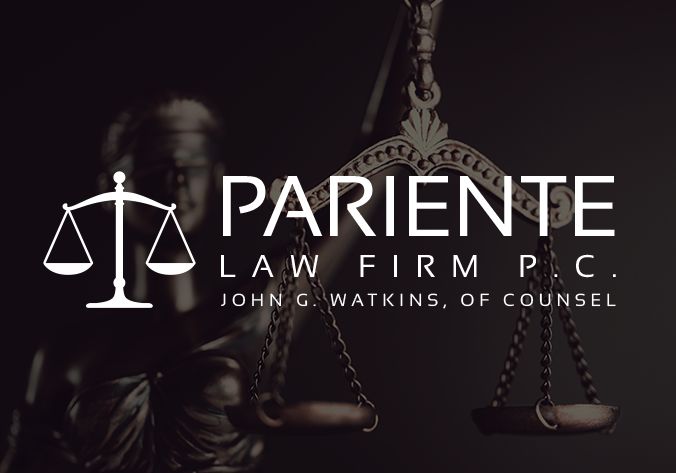
Las Vegas Cocaine Possession Attorney
Nevada is one of several states that classifies narcotics based on schedules. The substances are divided into these schedules according to the likeliness the drug will be abused and whether or not it has any proven medical use in the United States. Schedule 2 drugs, such as cocaine, often are the most dangerous.
Cocaine and other substances in the Schedule 2 category are considered to have the highest potential for abuse and no proven medical use. Because of this, the drugs are considered If you have been caught with cocaine in your possession, contact a Las Vegas drug defense lawyer immediately.
Cocaine Defense in NEvada
Drug charges always should be taken seriously, no matter the offense. Cocaine charges could significantly change the course of your life. If you have been arrested for possession of cocaine or another related offense, contact a Las Vegas cocaine defense lawyer at Pariente Law Firm, P.C. .
Michael Pariente is a dedicated criminal defense lawyer who has handled a plethora of drug and cocaine cases. With more than 15 years of experience in state and federal courts, he understands what it takes to build a strong defense while fighting for the rights of his clients.
If you are facing cocaine charges, begin protecting your future now. Call (702) 966-5310 to schedule a free consultation with attorney Michael Pariente. He represents clients throughout the Las Vegas area, including Henderson, Paradise and anywhere else in Clark County.
Information About Cocaine Charges in Nevada
Possession of Cocaine
One of the most common drug charges in Las Vegas is possession of a controlled substance. According to Section 453.336 of the Nevada Revised Statutes, it is against the law to knowingly or intentionally possess a controlled substance without a valid prescription.
Unlike marijuana, cocaine is an illegal substance throughout the country. Cocaine also is known as powder, blow and coke. In most instances no matter who is caught in possession of the substance, he or she could face serious charges. Schedule I drugs often carry critical consequences.
Possession is defined in two ways: actual or constructive possession. Actual possession means the person physically possessed the substance, such as in his or her hand or clothing. Constructive possession is a little more complicated. It simply means the person had knowledge of the substance and had the ability to possess it.
For instance, if a person is stopped by a police officer and he or she is found to have cocaine under the seat in the vehicle, it could be argued this is constructive possession. According to Section 453.337 of the Nevada Revised Statutes, a first offense could be considered a Category D felony, which is punishable by up to four years in prison, a fine of up to $5,000 or both.
A second offense could be a Category C felony, punishable by up to five year in prison, a fine of up to $10,000 or both. A third or subsequent offense could be considered a Class B felony, which could carry between three and 15 years in prison and a fine of up to $20,000 for each offense.
Possession with Intent to Deliver Cocaine
In Nevada, it also is a crime to knowingly or intentionally possess a controlled substance with the intent to sell it, according to Section 453.322 of the Nevada Revised Statutes. This charge could be considered a Category B felony, which could carry up to 15 years in prison, a fine of up to $100,000 or both.
This charge can be a little tricky because law enforcement officers have to use a variety of factors to prove a person intended to sell the narcotic. For example, if a person is stopped with a large amount of cocaine, as well as packaging materials, cash and weapons, police could argue he or she intended to sell or distribute the narcotic.
Cocaine Trafficking in Nevada
Any person, who knowingly or intentionally sells, manufactures, delivers or brings into this state or who is knowingly or intentionally in actual or constructive possession of cocaine or another Schedule 2 substance, can be charged with trafficking, according to Section 453.3385 of the Nevada Revised Statutes.
Penalties for the offense include:
- Four to 14 grams — Category B felony; up to six years in prison and a fine up to $50,000
- Fourteen to 28 grams — Category B felony; up to 15 years in prison and a fine up to $100,000
- Twenty-eight grams or more — Category A felony; life in prison with the possibility of parole after 10 years have been served or 25 years in prison with the possibility of parole after 10 years have been served with a fine up to $500,000.
Federal Cocaine Charges
Most often, cocaine charges will be applied at the state level. However, in some cases, a person could face federal charges for cocaine offenses, depending on the crime or crimes that allegedly were committed. Federal charges usually are more severe and the penalties are enhanced.
Possession, selling and trafficking of cocaine all is a criminal offense under both state and federal law. Federal agencies typically do not become involved in the prosecution of those who violate the law unless large amounts of the substance are involved or if the offense is committed across several states.
However, this does not mean a person in possession of a small amount should feel invincible. There are several other ways in which a person could be charged with a federal crime, including if he or she attempts to sell the substance to an undercover agent or if he or she is in possession of the drug on federal property.
Finding the Best Cocaine Defense Lawyer in Nevada
If you have been charged with a cocaine offense in Las Vegas, contact Nevada cocaine defense attorney Michael Pariente at Pariente Law Firm, P.C.. He is a skilled criminal defense attorney with more than 15 years of experience handling a variety of drug cases. He knows how to get a favorable outcome in your unique case. Call (702) 966-5310 today.

Read Our Case Results
-
 Casino Marker
Casino Marker -
 Casino Marker
Casino Marker -
 Battery Constituting Domestic Violence
Battery Constituting Domestic Violence -
 Battery and Domestic Violence
Battery and Domestic Violence -
 Attempted Murder, Kidnapping, Burglary, and Battery
Attempted Murder, Kidnapping, Burglary, and Battery


